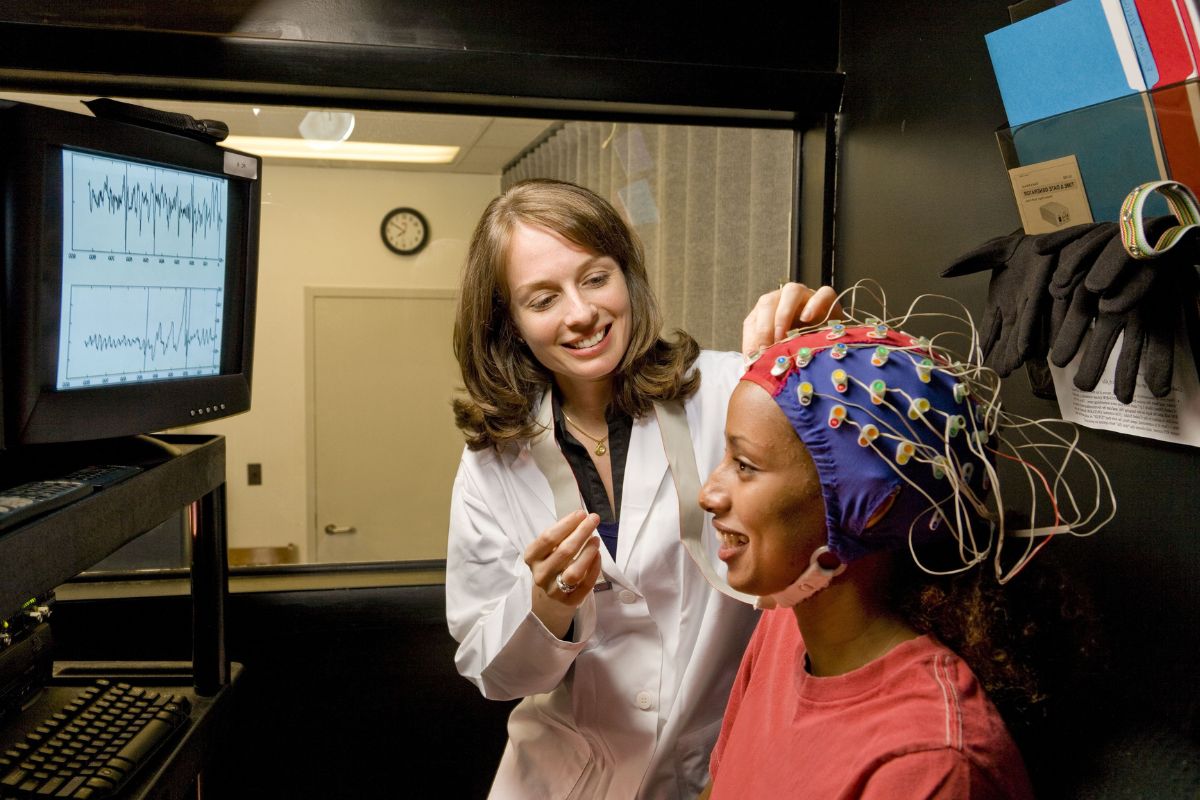
Psychology experiments have always fascinated people, revealing the hidden workings of the human mind. From understanding how we make decisions to uncovering the reasons behind our emotions, these studies offer a glimpse into what makes us tick. Did you know that some of the most famous experiments, like the Stanford Prison Experiment or Milgram's obedience study, have shaped our understanding of human behavior? These experiments not only provide insights but also raise ethical questions about how far researchers should go. In this post, we'll dive into 35 intriguing facts about psychology experiments that will leave you questioning what you thought you knew about the mind. Get ready to be amazed!
Key Takeaways:
- Dive into the fascinating world of psychology experiments and learn how they've shaped our understanding of human behavior, cognition, and emotions.
- Discover how psychology experiments have uncovered surprising findings, sparked ethical controversies, and continue to impact our everyday lives through technology and practical applications.
The Fascinating World of Psychology Experiments
Psychology experiments have revealed incredible insights into human behavior, cognition, and emotions. Here are some intriguing facts about these studies that have shaped our understanding of the mind.
Classic Experiments That Changed Psychology
Some experiments have become legendary due to their profound impact on the field.
- Stanford Prison Experiment: Conducted by Philip Zimbardo in 1971, this study showed how quickly people could adopt abusive behaviors when placed in positions of power.
- Milgram Obedience Study: Stanley Milgram's 1963 experiment demonstrated that ordinary people could commit harmful acts when instructed by an authority figure.
- Little Albert Experiment: John B. Watson and Rosalie Rayner's 1920 study conditioned a baby to fear a white rat, illustrating classical conditioning in humans.
- Bobo Doll Experiment: Albert Bandura's 1961 study revealed that children imitate aggressive behavior observed in adults.
- Asch Conformity Experiments: Solomon Asch's 1950s studies showed how peer pressure could lead individuals to conform to incorrect group opinions.
Surprising Findings from Psychology Research
These experiments uncovered unexpected results that challenged existing beliefs.
- The Halo Effect: Edward Thorndike's 1920 study found that people tend to assume that attractive individuals possess other positive traits.
- The Bystander Effect: Research by John Darley and Bibb Latané in 1968 revealed that people are less likely to help someone in distress when others are present.
- Cognitive Dissonance: Leon Festinger's 1957 study showed that people experience discomfort when holding conflicting beliefs, leading them to change their attitudes or behaviors.
- The False Memory Syndrome: Elizabeth Loftus' research in the 1970s demonstrated that people could be led to remember events that never happened.
- The Placebo Effect: Studies have shown that people can experience real improvements in health after receiving a treatment with no therapeutic value.
Ethical Controversies in Psychology Experiments
Some studies have sparked debates about the ethical treatment of participants.
- The Monster Study: Wendell Johnson's 1939 experiment on stuttering involved unethical treatment of orphaned children.
- The Tuskegee Syphilis Study: This 1932-1972 study withheld treatment from African American men with syphilis, leading to severe health consequences.
- Harlow's Monkeys: Harry Harlow's 1950s research on maternal deprivation involved isolating baby monkeys, causing long-term psychological damage.
- The Tearoom Trade Study: Laud Humphreys' 1970 research on anonymous sexual encounters raised privacy concerns due to the covert observation of participants.
- The Robbers Cave Experiment: Muzafer Sherif's 1954 study on intergroup conflict involved manipulating boys at a summer camp without their informed consent.
Modern Psychology Experiments and Their Impact
Recent studies continue to expand our understanding of the human mind.
- The Marshmallow Test: Walter Mischel's 1972 study on delayed gratification found that children who could wait for a second marshmallow tended to have better life outcomes.
- The Implicit Association Test (IAT): Developed in the 1990s, this test measures unconscious biases and has been used to study prejudice.
- The Dunning-Kruger Effect: Research by David Dunning and Justin Kruger in 1999 showed that people with low ability often overestimate their competence.
- The Social Media Experiment: Studies have shown that excessive use of social media can lead to increased feelings of loneliness and depression.
- The Power of Habit: Research by Charles Duhigg and others has demonstrated how habits form and how they can be changed.
Fun and Quirky Psychology Experiments
Not all psychology experiments are serious; some have a playful side.
- The Stroop Effect: John Ridley Stroop's 1935 experiment showed that naming the color of a word takes longer when the word itself is a different color.
- The Rubber Hand Illusion: This 1998 study by Botvinick and Cohen demonstrated how easily the brain can be tricked into feeling sensations in a fake hand.
- The Door Study: Daniel Simons and Daniel Levin's 1998 experiment revealed that people often fail to notice changes in their environment, a phenomenon known as change blindness.
- The Invisible Gorilla Experiment: Christopher Chabris and Daniel Simons' 1999 study showed that people can miss obvious things when focused on a specific task.
- The IKEA Effect: Research by Michael Norton and colleagues in 2011 found that people place higher value on things they have helped create.
The Role of Technology in Modern Psychology Experiments
Advancements in technology have opened new avenues for psychological research.
- fMRI Studies: Functional magnetic resonance imaging allows researchers to observe brain activity in real-time, providing insights into cognitive processes.
- Virtual Reality Experiments: VR technology enables the creation of immersive environments for studying behavior and cognition.
- Online Surveys and Experiments: The internet has made it easier to collect data from diverse populations around the world.
- Wearable Technology: Devices like smartwatches can track physiological data, offering new ways to study stress, sleep, and other behaviors.
- Artificial Intelligence: AI is being used to analyze large datasets, identify patterns, and even simulate human behavior.
Psychology Experiments in Everyday Life
Many principles from psychology experiments can be applied to improve daily life.
- Behavioral Economics: Studies on decision-making have led to strategies for better financial planning and consumer behavior.
- Positive Psychology: Research on happiness and well-being has identified practices that can enhance life satisfaction.
- Mindfulness and Meditation: Experiments have shown that these practices can reduce stress and improve mental health.
- Educational Psychology: Insights from studies on learning and memory have informed teaching methods and educational policies.
- Health Psychology: Research on behavior change has contributed to interventions for healthier lifestyles, such as quitting smoking or increasing physical activity.
Final Thoughts on Psychology Experiments
Psychology experiments have given us a deeper understanding of human behavior. From the Stanford Prison Experiment to Milgram's Obedience Study, these studies reveal how people think, feel, and act in different situations. They highlight the power of authority, the impact of social roles, and the influence of group dynamics.
These experiments also remind us of the importance of ethics in research. Some studies, like the Little Albert Experiment, raised serious ethical concerns, leading to stricter guidelines to protect participants.
Understanding these experiments helps us appreciate the complexity of human nature. They show that behavior isn't always logical or predictable. By learning from these studies, we can better understand ourselves and others, fostering empathy and improving our interactions.
So, next time you find yourself puzzled by someone's actions, remember these psychology experiments. They might just offer some valuable insights.
Frequently Asked Questions
Was this page helpful?
Our commitment to delivering trustworthy and engaging content is at the heart of what we do. Each fact on our site is contributed by real users like you, bringing a wealth of diverse insights and information. To ensure the highest standards of accuracy and reliability, our dedicated editors meticulously review each submission. This process guarantees that the facts we share are not only fascinating but also credible. Trust in our commitment to quality and authenticity as you explore and learn with us.


